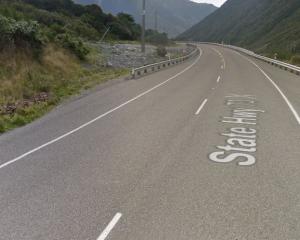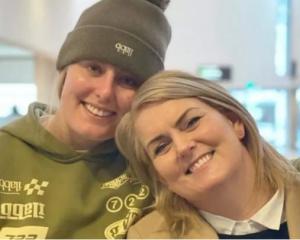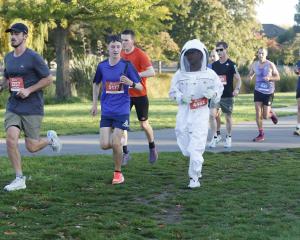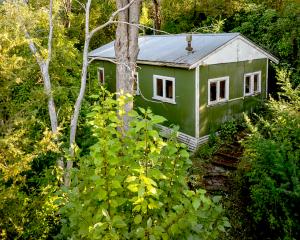
Australian national Brenton Tarrant murdered 51 worshippers and injured dozens more after opening fire in the Al Noor and Linwood mosques in Christchurch on March 15 last year.
Temel Atacocugu will undergo his fifth major surgery tomorrow after being shot nine times during the Christchurch terror attacks.
But first, he will stand in court today and tell gunman Brenton Tarrant how his actions on that day have changed his life.
"I’m quite nervous about it because the last 18 months have been a long journey," said Mr Atacocugu, who is one of 66 people giving victim impact statements.
His brother has travelled from Turkey to stand at his side when he does.
"This is the day for justice that we have long been waiting for. It’s been very challenging physically, emotionally, and mentally," Mr Atacocugu told the Herald before the sentencing, which is expected to take four days.
Justice Cameron Mander has acknowledged the sentencing will be "a difficult experience for victims and their families" - whether they are attending in person or watching via secure, private livestream feeds.
The victims and their loved ones have also been warned by specialist victim support officers that the sentencing process will be emotional, upsetting and potentially re-traumatising.
It will start with the official version of events - the Crown’s summary of facts - being read for the first time shortly after proceedings begin in the High Court at Christchurch this morning.
Some of the victims and their families will be watching remotely. Dozens of others will be there in person. Some, like Rahimi Ahmad will stay away.
Mr Ahmad was shot in the back during Friday prayer on March 15 last year at Al Noor Masjid where 42 fellow Muslims were murdered. Another nine were killed shortly after when the gunman continued his deadly rampage at Linwood Islamic Centre 7.3km away.
Mr Ahmad played dead to survive. He spent six days in a coma. He has spent the past year learning to walk again.
The father-of-two feels trepidation about this week’s sentencing, especially since his personal victim impact statement will be read aloud in court by a Victim Support officer. He won’t be in court himself - he feels it would be too much for him and his family.
Ahmad and his wife, Azila, don’t believe sentencing will bring any feelings of closure.
"For myself, I have to stay with this injury for the whole of my life," he said.
The 29-year-old Australian shooter has admitted his crimes and will be jailed for life. Ahmad hopes he will stay behind bars his whole life.
Feroze Mohammed Ditta, shot twice in the leg at Al Noor and now general secretary of Muslim Association of Canterbury (MAC), believes this week - although "somewhat very foreign ... and also daunting" - is important.
Mr Ditta believes it will give the Christchurch Muslim community "some closure and an opportunity to move on".
"The prospect of facing the offender in itself is very daunting but necessary for our community to move on and heal," he said.
Security will be tight in and around the Christchurch Justice Precinct which houses the courthouse where Tarrant will appear in person - along with seven overflow rooms for families, support people, and journalists who can’t fit into the main courtroom.
Canterbury district commander Superintendent John Price says there would be "an increased and highly visible presence" around Christchurch before and during the court process.
After initially pleading not guilty, Tarrant admitted 51 charges of murder, 40 counts of attempted murder and one of engaging in a terrorist act, laid under the Terrorism Suppression Act 2002.
He has sacked his lawyers and will represent himself during sentencing - which is his legal right - and will be given an opportunity to present his submissions.
The country's largest news outlets have pledged not to allow the defendant to use the court as a vehicle to promote white supremacist ideology.
COURT PROCESS
The court has been forced to scale back its initial plan to accommodate a large number of people in light of the second Covid-19 outbreak in Auckland.
As a result, the number of people allowed into the law courts is limited to 230 people with the main courtroom hosting 35 victims and 10 journalists.
The remaining victims, journalists and 12 members of the public will be seated in seven overflow courtrooms to observe the sentencing via livestream.
The Government has extended its "limited exemptions" process to allow 47 victims to travel to New Zealand to attend the hearing in person.
They will be supported in court by victim advisers, police family liaison officers and Victim Support, with separate breakout, prayer and whānau rooms in court.
Other victims not in court will watch the sentencing via livestream, which will be translated into eight languages to account for the range of affected cultures.
Journalists from 11 New Zealand outlets and 18 overseas outlets have had to undergo a formal registration process to report on the sentencing.
International journalists unable to travel because of Covid-19 border restrictions will have access to the livestream, provided they comply with strict court orders.
There will be no live reporting of the sentencing and it's expected there will be delays as reporting is only permitted after the midday break and at the end of the day.
People can expect not to see any report republishing the livestream of the massacre or associated manifesto as both have been deemed objectionable by the Chief Censor.
- NZ Herald and RNZ













